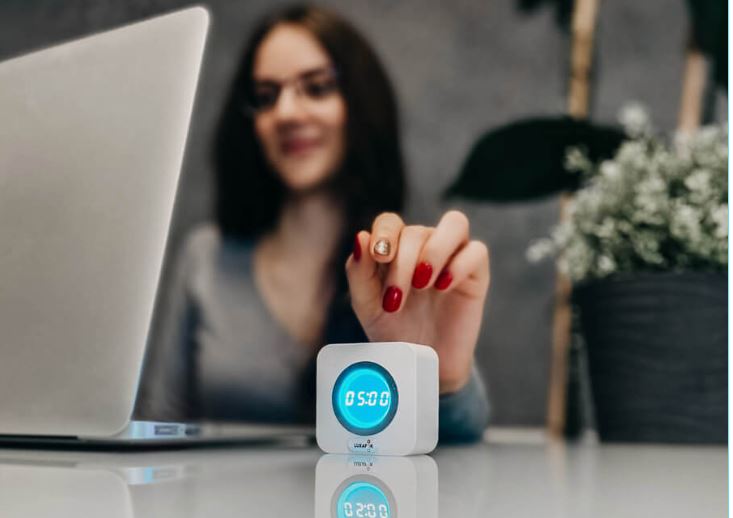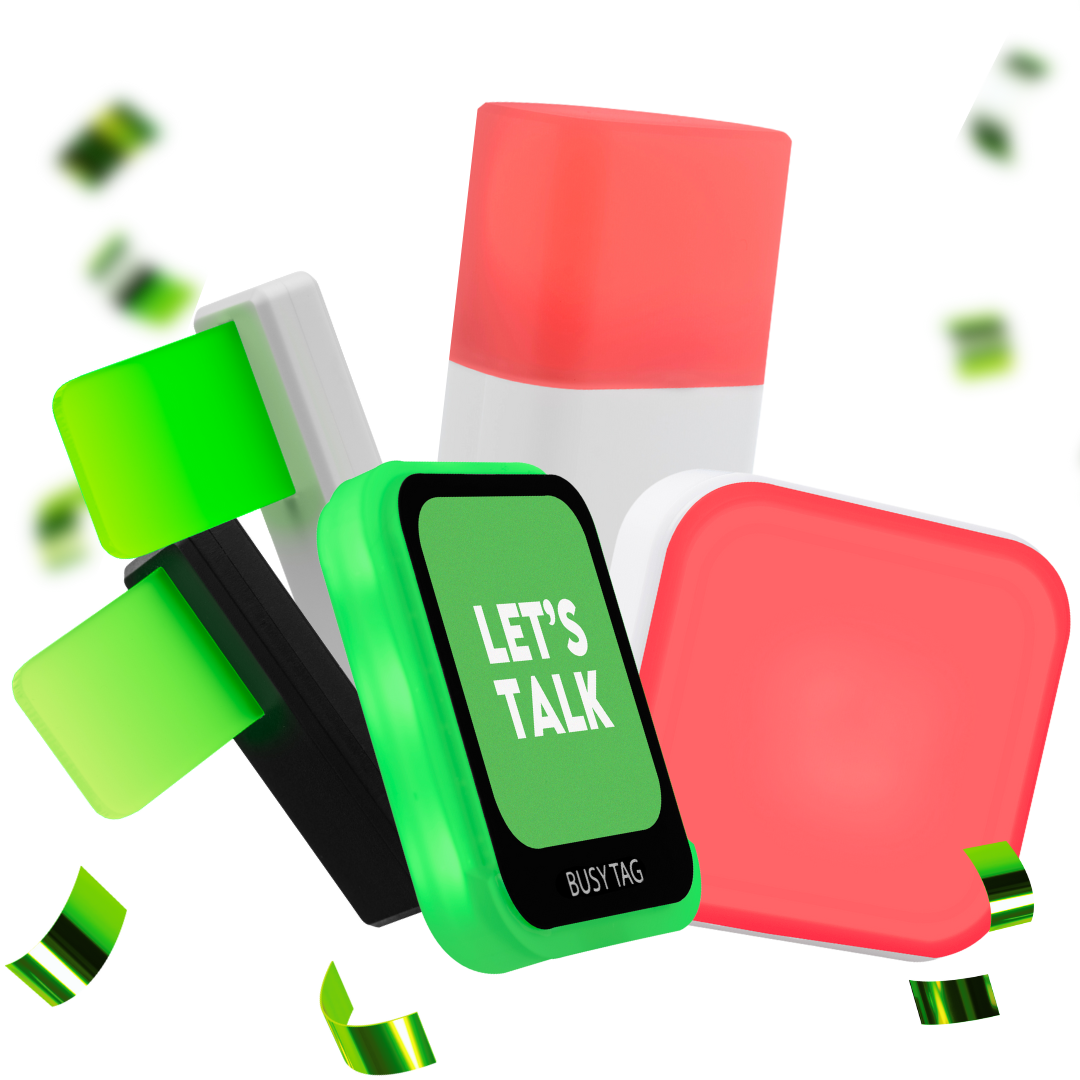How to Work Less and Get More Done?
We live in a society that is hungry for success and the work culture of today continuously tells us that we must put in more effort in order to accomplish more. What if working less intensely was actually the secret to productivity instead of packing more hours into your already busy day? The truth is that if you spend more time working does not necessarily guarantee you more achievement in the long run. The main key to excel at work is not working harder or working longer hours – no, not at all, the success lies in working less, but doing it in a smarter way. Let`s face it – achieving your professional dreams, building the career you want, and combining it all with your daily life, family, hobbies and friends often seems impossible, because there is not enough time for it all.
Due to the technological advancements and change in work practices, more people are realizing that you don’t need to work longer than 40 hours a week to have a successful career. In fact, working more than 8 hours a day reduces productivity and efficiency. In some companies, the duration of the working day is only 6 hours – proving you can work less and get more done. So if you want to be one of those people who can work less, but still get everything done and be happy in your career, then it is certainly worth testing out these 9 useful and practical rules:
Work undisturbed and keep your focus easily.
Manage and eliminate distractions
Mastering the art of managing distractions can empower you to reclaim your attention and achieve laser-sharp focus. Turn off email notifications and social media alerts on your phone and your computer during focused work periods or put the phone away, and find a quiet workspace to minimize distractions. Consider tools that block distracting websites for focused work sessions – experiment with apps and browser extensions that block those websites and social media platforms.
Ensure your workspace is free from clutter and distractions and set dedicated time slots in your calendar for focused work and stick to them religiously. Dealing with distractions is not an easy process. You can practice different strategies and find what works best for you. Don’t let an occasional slip-up demotivate you; instead, just refocus and reaffirm your commitment to cultivate a distraction-free zone for yourself. You can develop clear focus, do more in less time, and feel profound, lasting job satisfaction using these techniques.
Give 80/20 rule a try
Imagine that by putting in just 20% effort could provide you with 80% of the results you want. That is the power of the 80/20 rule, commonly referred to as the Pareto Principle. This straightforward principle, named with regard to Italian economist Vilfredo Pareto, can revolutionize your productivity and efficiency at work and is applicable in a variety of professional settings.
This principle suggests that, for many situations and outcomes, roughly 80% of the consequences come from 20% of the causes. In simpler terms, a small number of inputs often account for the majority of the outputs. The key is to divide your working day so that 80% of your time is devoted to the important work, and only 20% to less important work that needs to be done, but is no prioritized. After you’ve determined which of your tasks have the most significant influence, give those tasks maximum priority. Provide them the majority of your attention and resources.
The 80/20 rule is an excellent method for time management, but it’s not a set rule. This ratio could change based on the circumstances. However, you may greatly improve your output, effectiveness, and overall impact in every aspect of your life by learning and putting this theory into practice.
Practice Pomodoro Technique
You may appear to be working less, or at least less intensely, if you work in targeted shorter or longer sessions with little breaks in between. With the help of this method you can experience an improvement in the level of quality and effectiveness of your work. You accomplish more in less time, giving you valuable hours to spend on other enjoyable activities. The Pomodoro technique might help you manage your focus and energy usage. You can start with focused work session for 25 minutes. Set a timer for 25 minute work session on one task at a time. After this session take a 5-minute break to rest and recharge.
Dividing the day into shorter work sessions can help to maintain energy throughout the day when you work in 25-minute long work intervals with short breaks in between. This method helps to maintain focus and prevents burnout. Test different intervals and break lengths to choose the best ones for you. Use it strategically for demanding tasks and combine it with other productivity techniques for maximum impact.
Delegate and outsource the workload
At some point in life you have to realize that you don’t have to do everything by yourself. Outsourcing and delegation are effective strategies that can improve productivity, free up your schedule, and enable you to take on new challenges. Do not hesitate to assign work to coworkers or hire someone when you need an additional help. Your time can surely be much more usefully allocated to the core duties that call for your expertise.
Many experts emphasize that the ability to plan workload and outsource is one of the main keys to successful daily organization. Moreover, one of the essential factors in eliminating time thieves from your daily life is the ability to delegate tasks. Most often, we willingly loose our time to time thieves, however, by effectively planning our daily routine, it is possible to save even several hours a week. What exactly does it mean to delegate and outsource? This does not mean simply giving your work to someone else. You have to be willing to make the tough decisions and let go of responsibility at times, and while that might make life easier, it’s far from easy for many of us to do.
Say NO when you need it
You definitely want it all – for others to respect and appreciate you, but also for you to never have to say “no”, but you realize – that’s impossible. Because there is another tough connection: if a person does not know how to say “no”, both emotional and physical overload will occur over time, when at one point the body responds with illness or burnout. Even if there is a slight desire to please people, having the capacity to respectfully deny their requests is prominent for leading a balanced and satisfying life. Every single day, you only have a limited amount of time and energy that you need to protect.
People that are successful will always have a lot on their plate and numerous duties to carry out. When you understand what are the things that you have to accomplish, to achieve, at some point you will also have to refuse a job or a project that someone wants you to do additionally. Knowing how and when to say no is a necessity. Consequently, the next time you’re feeling the pressure to say yes, take a moment and decide what is best for you with confidence.
Learn a new skill every day
To improve in every aspect, one must be able to learn continuously in an environment where innovation and change take place all the time. The habit of learning will improve many skills, required for work and will keep the mind active for many years to come. Additionally, it may open doors to other professional paths and a deeper feeling of fulfillment and purpose.
You don’t need to dedicate long hours to learn each day. Short bursts of focused learning, even 10-15 minutes a day, can yield significant results over time. There is so much knowledge available for you across the web. Explore online courses, podcasts, educational blogs, documentaries, and audio books. Find resources that align with your interests and learning style, turn everyday situations into learning opportunities.
Step outside your comfort zone and learn a new skill. For example, take a language course, learn to code, or pick up a musical instrument. The process of learning itself is a valuable experience. Don’t just passively consume information. Practice what you learn by taking notes, discussing what you’ve learned with others, or apply your new knowledge to real work situations.
Get your Work Less Get More Done PDF guide
Schedule breaks during the day
You probably know the feeling of tiredness when you have been spending hours glued to the screen, eyes getting blurry and focus fading. But what if the key to sustained productivity wasn’t about working yourself till exhaustion, but strategically incorporating breaks? Our brains are like muscles and they need rest to function optimally. Short breaks help your brain recharge, improving information processing and focus when you return to your task.
The key to a strategic break is disconnecting from your work completely. Get up, walk around, stretch, have some fresh air, or chat with a colleague. Do not skip breaks, because they can help you refresh your mind and avoid burnout. Consider incorporating breaks for mindfulness exercises or deep breathing techniques. Even short breaks will help to restore energy and be more productive in the long run.
Prepare for the day and the week ahead
We are all familiar with The Sunday scaries or The Monday morning scramble as well as the unpleasant feeling of dread that can creeps in as the weekend winds down and the workweek looms ahead. But what if you could transform those anxieties into a sense of calm and control? Learn the art of weekly preparation – a strategic approach that sets you up for a more productive and stress-free week.
Although we have been waiting for the weekend since Monday morning, due to the busy schedule and lack of planning, we do not manage to spend it productively. However, there is a solution – dedicate your weekend to relaxation, pleasant activities and planning, so that you can start the next week calmly and prepared.
To be most efficient you need to prepare for each working day the day before. You need to make a plan with priorities and important things that need to be done that day. Because feeling prepared and organized can enhance your overall sense of control and well-being. Planning helps you allocate time effectively, ensuring you dedicate sufficient attention to each task. Although weekly and daily planning is not a simple one-size-fits-all approach. You have to find what works best for you – take control, embrace preparation, and watch your productivity reach the next level.
Disconnect when you are not working
We are surrounded with constant sound of notifications, the never-ending to-do list and the pressure to be “always on”. But here is the truth: taking time off and disconnecting from work is not a luxury, it’s a necessity. Wen you learn to create a healthy boundary between your professional and personal life, it will result in improved well-being, creativity, and long-term productivity.
Being constantly plugged in your tasks leads to chronic stress, tiredness, and ultimately, burnout. Constant work availability does not serve you and can negatively impact your mental and physical health. It disrupts sleep patterns, increases anxiety, and leaves little room for personal life and relaxation.
Disconnecting allows your mind to wander and recharge. It’s during these periods of downtime that the best ideas often strike and creativity flourishes. Imagine you’re taking a tour of France and learning about the exploits of Lt. Speirs, but you can’t pay attention to the story because you keep getting notifications. When you have a day off or go on vacation make sure you’re logged out of your work email. We work 5 days a week, and only 2 days have the time that we can fully devote to family or friends. We should use this opportunity and “disconnect” from work on holidays and take time off.
Luxafor Orb
The bottom line
There is a widespread belief in society that to earn a lot of money you need to work long hours and hustle as hard as you can. This is often true for entrepreneurs and business focused people. But there is also an alternative approach based on the “work smarter, not harder” practice. It shows that there is no need to equate success with the hustle culture, because the real key to productivity could actually be working less.
The idea that success requires endless hours ow work is an unproductive myth. More employees as well as companies are turning their attention to work-life balance, which can be achieved with tools and techniques that allow you to work smarter, not harder. This article empowers you with strategies to boost your productivity and reclaim your time by:
- Eliminating distractions;
- The Pareto Principle (80/20 Rule);
- The Pomodoro Technique;
- Delegation and outsourcing;
- Saying No to protect your time;
- Continuous learning;
- Strategic breaks throughout the day;
- Planning and prepping for the week ahead;
- Disconnecting from work.
Just to be clear – working less does not mean that you will achieve less. All of the mentioned tips and techniques can enable you to work smarter, not harder, and unlock a world of productivity with more time for the things matter the most. By using these productivity strategies you can work less, achieve more, and experience a more balanced and productive life.
LUXAFOR HELPS PEOPLE TO ACHIEVE THEIR GREATEST PRODUCTIVITY LEVELS WITH A WIDE VARIETY OF OFFICE PRODUCTS. LET’S BE PRODUCTIVE TOGETHER!
Working less doesn't necessarily mean being less productive. It's often about working smarter, not harder. Here are some strategies to help you reduce your workload:
- Prioritize and focus;
- Automate tasks;
- Time tracking;
- Embrace imperfection;
- Learn to rest;
Additional Tips:
- Communicate effectively: Clear communication can prevent misunderstandings and reduce unnecessary work.
- Keep learning: Stay updated on tools and techniques to improve efficiency.
- Set boundaries: Establish clear work-life boundaries to prevent burnout.


















